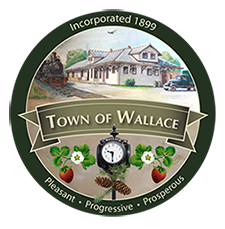Responsibilites
The Department
The Department also maintains and updates the Town’s Zoning Map and Zoning Ordinance. Planning Department Staff works to provide professional guidance and coordination of all land planning and development activities, and to fairly and consistently implement the Town’s regulations and policies.
Rod Fritz
Planning Director
Hours
8:00am – 5:00pm
Public Notice Hearing
GIS & Zoning
What is GIS?
Geographic Information System brings geographic data from surveys, plats, spreadsheets, GPS units and paper files together within a computer network that is available to employees, officials and citizens for the generation of visual maps and reports; for tracking permits, fees and licenses; and for modeling, projecting and analyzing geographic data trends.
Why GIS?
- Land Use Zones
- Tax Parcel Information
- Street Addresses/Ownership
- Bill Board Overlay
- City Limits
- City ETJ
- Historic District
Zoning
Code Enforcement
Addressing Neighborhood Concerns
Ordinances enforced by Code Enforcement
- Junk & Abandoned vehicles
- Minimum Housing Code
- Non-Residential Maintenance Standards
- Public Nuisances (weeded lots, trash, debris in yards)
Complaint Process
While many people think that problems can be immediately resolved by a visit from one of our officers, there is often an extensive due process that must take place to achieve compliance.
- Problem identified (through citizen complaint or officer detection)
- Certified letter sent to property owner detailing Town ordinance violation
- Up to 30 days are given to the property owner to respond to the letter
- After that time has elapsed, a second inspection is conducted on the property
- If the property is not brought into compliance, the Town may:
- issue civil penalties with each day being a separate offense or
- complete the work and bill the property owner as per the fee schedule.
A similar process is involved for structures that are abandoned or structurally unsound. However, those require action by Town Council before the structure can be demolished.
Unified Development Ordinance
Chapter 6
Development Standards
Chapter 7
Nonconformities
Chapter 8
Maintenance Standards
Chapter 9
Enforcement
Chapter 10
Definitions
